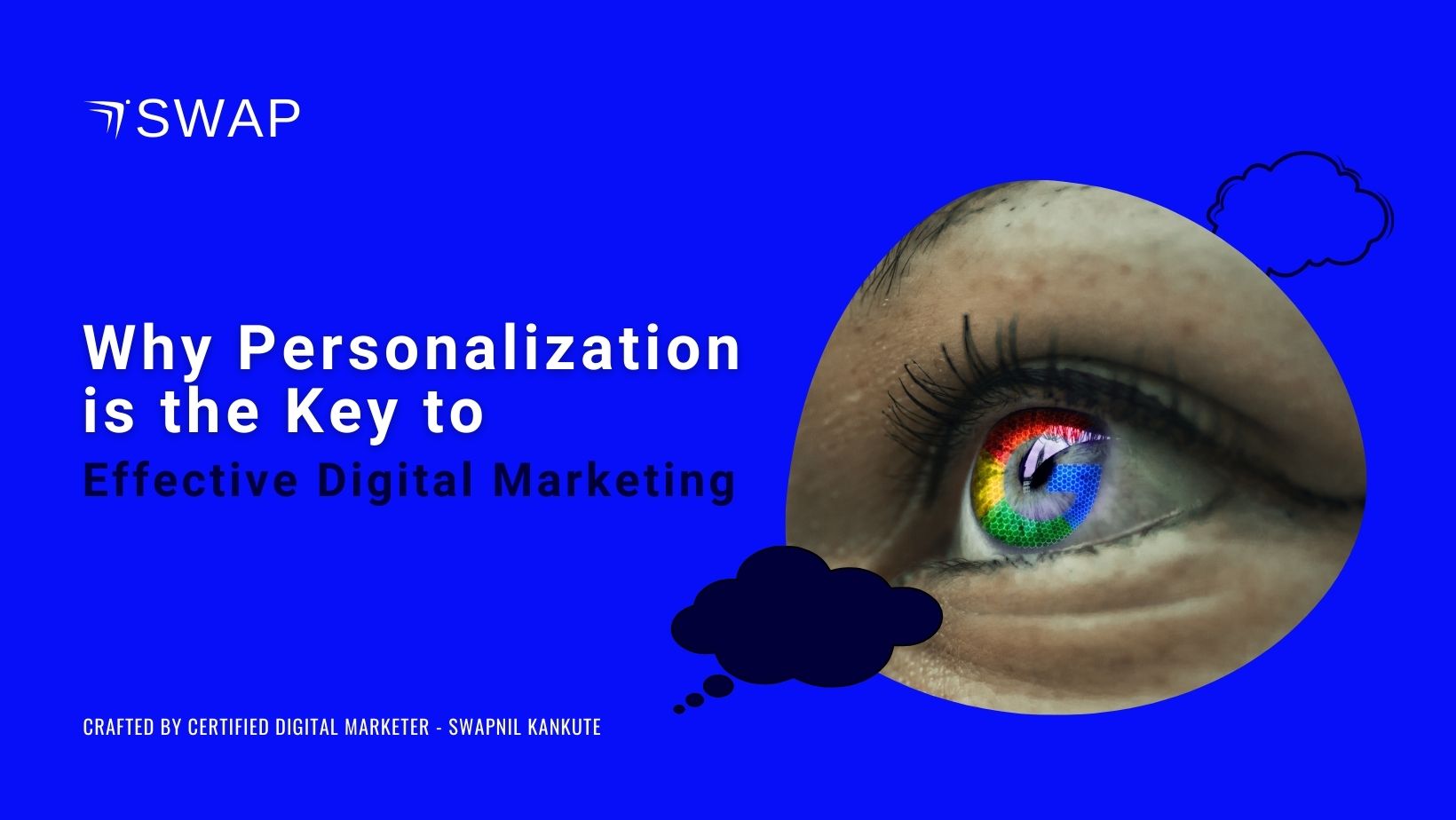Is your digital marketing strategy truly connecting with your audience?
In today’s digital age, consumers are bombarded with content from every direction. To stand out, brands must deliver personalized experiences that resonate with their audience. As a Certified Digital Marketer in India, I, Swapnil Kankute, will explore why personalization is essential for effective digital marketing and how businesses can implement it successfully.
The Need for Personalization in Digital Marketing
Consumers expect more than generic messages; they seek relevance and connection. Personalization in digital marketing involves tailoring content, offers, and experiences to individual preferences, behaviors, and needs.
My Perspective on Personalization
- Enhanced Customer Experience: Personalized marketing makes customers feel valued and understood. By delivering relevant content and offers, businesses can significantly enhance the customer experience, leading to higher satisfaction and loyalty.
- Improved Engagement and Conversion Rates: Personalization boosts engagement by delivering content that aligns with users’ interests. This relevance increases the likelihood of conversions, as customers are more likely to act on offers that meet their specific needs and preferences.
- Data-Driven Insights: Personalization relies on data analysis to understand customer behavior. By leveraging data analytics, businesses can gain valuable insights into customer preferences, enabling them to refine their marketing strategies and deliver more targeted campaigns.
Addressing Counterarguments
Some may argue that personalization invades privacy. However, businesses can address this concern by being transparent about data usage and providing options for customers to control their data. Ethical data practices build trust and enhance the effectiveness of personalized marketing.
Implementing Personalization in Digital Marketing
- Collect and Analyze Data: Gather data from various touchpoints, including website interactions, social media, and email campaigns. Use analytics tools to gain insights into customer behavior and preferences.
- Segment Your Audience: Divide your audience into segments based on demographics, behavior, and interests. This segmentation allows for more targeted and relevant messaging.
- Create Personalized Content: Develop content that speaks directly to each audience segment. Use dynamic content and personalized recommendations to deliver tailored messages across different channels.
- Utilize Marketing Automation: Implement marketing automation tools to deliver personalized content at scale. Automation can help streamline processes, ensuring that the right message reaches the right person at the right time.
- Test and Optimize: Continuously test and optimize your personalization strategies. Use A/B testing to determine what resonates with your audience and refine your approach based on data-driven insights.
Challenges and Considerations
Implementing personalization requires careful planning and execution. Challenges include data management, maintaining privacy, and ensuring consistency across channels. Businesses must also stay updated with the latest trends and technologies to keep their personalization strategies effective.
Conclusion
Personalization is no longer a luxury but a necessity in digital marketing. By delivering relevant and tailored experiences, businesses can connect with their audience on a deeper level, driving engagement, loyalty, and conversions.
Final Thoughts: Embrace personalization to create meaningful connections with your customers. Leverage data, segmentation, and automation to deliver personalized experiences that resonate and drive results. For more insights on effective digital marketing strategies, visit my website and explore our resources. Together, we can unlock the power of personalization in digital marketing.



